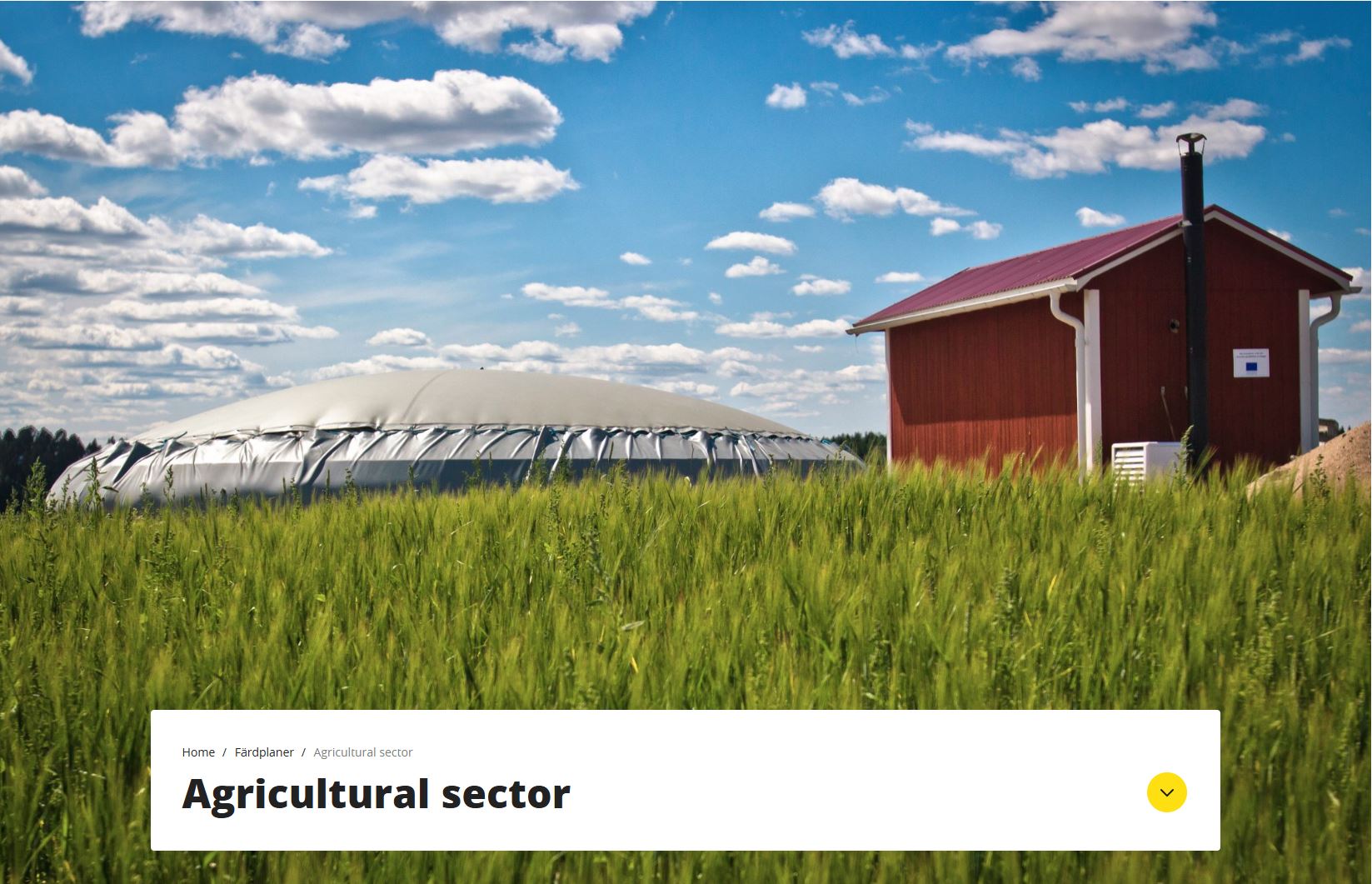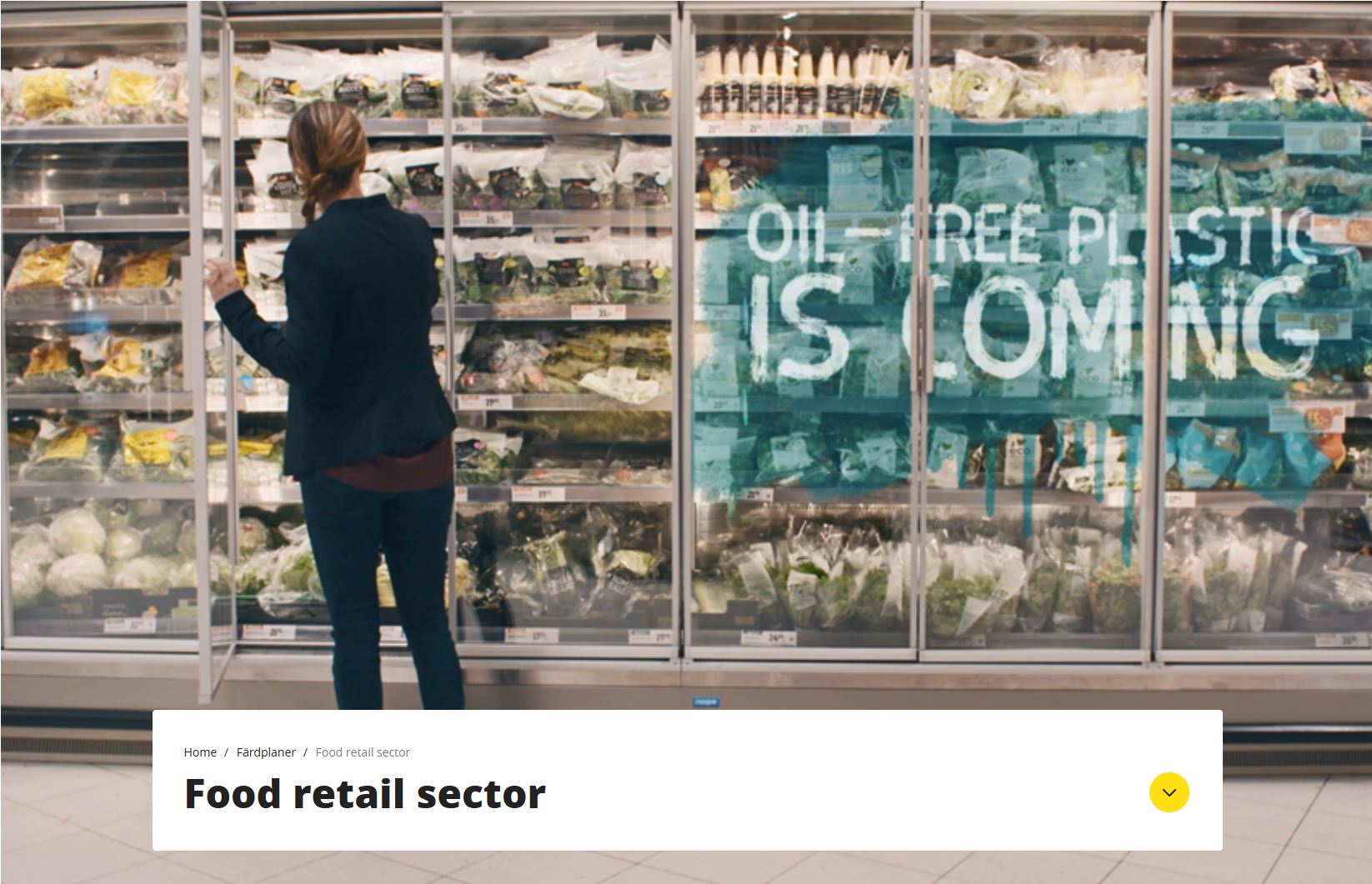Agriculture & Food Systems
Climate solutions – Agriculture & Food Systems
Agriculture and food systems are responsible for around a third of global emissions. Sweden, aiming to reduce agri-food emissions by 45% by 2050, has mitigation and adaptation lessons for other countries navigating similar transitions.
Major potential
Transforming food systems offers major mitigation and adaptation potential. A shift to circular, resilient value chains can reduce emissions, safeguard ecosystems, and enhance water and resource efficiency. Co-benefits of a just transition in the sector include improved food security, healthier diets, job creation, and greater resilience to climate shocks.
Join our journey
Sweden aims to reduce agri-food emissions by 45% by 2050, while at the same time strengthening food security and resilience. Since 1990 emissions have fallen by 13%. The way forward combines circularity, resilience, and innovation across the food value chain.
Climate solutions across the board
Swedish companies, researchers, and institutions are already supporting climate-resilient food systems worldwide, helping partners reduce emissions, adapt to climate impacts, and enhance food and nutrition security. Climate solutions include:
- Regenerative Agriculture – Swedish organisations are advancing regenerative agriculture to build long-term climate resilience. These practices reduce emissions from land degradation, decrease dependence on synthetic fertilisers, and enhance food system stability. Soil carbon enhancement and sustainable land management also strengthen rural economic stability and help smallholders adapt to shifting environmental conditions.
- Agroforestry and Ecosystem Restoration – Agroforestry integrates trees with crops or livestock, enhancing yields, improving soil quality, and buffering farms against extreme weather. It also relieves pressure on natural forests and creates biodiversity corridors. Reforestation and native forest restoration contribute to erosion control, improved water cycles, and long-term carbon storage.
- Precision Agriculture – Swedish innovations in precision agriculture harness AI, sensors, and data analytics to optimise inputs such as water, fertilisers, and pesticides. These technologies improve yields, reduce emissions, and enable farmers to anticipate and adapt to extreme weather or pest outbreaks. Precision systems enhance resilience by improving real-time decision-making. They also lower the energy footprint of farming operations and contribute to food system competitiveness.
- Processing and Manufacturing – Swedish companies enable climate-resilient, efficient food value chains through integrated processing solutions that lower energy and water use, reduce chemical inputs, and minimise production losses. Digitalised, modular, energy-efficient factories offer localisation and flexibility while cutting emissions. Circular technologies convert by-products into food, feed, or bio-based materials, and help prevent food losses, thereby enhancing resilience and resource efficiency.
- Distribution and Logistics – Swedish innovations in cold chain and logistics decarbonisation extend product shelf life, reduce spoilage, and cut supply chain emissions. Clean-powered refrigeration, aseptic packaging that eliminates the need for chilling, and renewable energy-based logistics systems contribute to food quality and inclusivity. Digital platforms enhance transparency and traceability, enabling more climate-smart supply chains.
- Alternative Proteins – Swedish innovators are developing plant-based alternatives that can meet the nutritional needs of a growing global population while significantly reducing emissions, land use, and water demand. These emerging protein sources contribute to climate mitigation and strengthen food system resilience. With scalable potential, they play a critical role in ensuring future food security.
- Use of Side Streams – Swedish companies are pioneering technologies that transform agricultural and food industry by-products and side streams into high-value nutrition inputs. These circular solutions cut emissions, reduce resource loss, and increase efficiency across the food system.
- Biodegradable and Circular Food Packaging – Swedish companies lead in developing biodegradable, compostable, and recyclable food packaging that cuts emissions, reduces pollution, and supports circular economy goals. These solutions also extend shelf life and reduce spoilage. Swedish packaging innovations align environmental protection with improved system resilience and competitiveness.
- Water Systems – Swedish technologies in precision irrigation, wastewater recovery, and low-energy desalination reduce freshwater use, cut emissions, and bolster agricultural productivity. Circular water systems improve soil health, decrease pollution, and ensure water availability in drought-prone areas, enhancing adaptation and climate resilience.
- Enablers to Facilitate Mitigation and Adaptation – Sweden’s agricultural and food sectors benefit from a broad range of expertise, tools, and innovations designed to accelerate decarbonisation and climate resilience. Swedish companies, researchers, institutions, and NGOs provide comprehensive support worldwide, spanning finance, policy, research, and capacity building.





